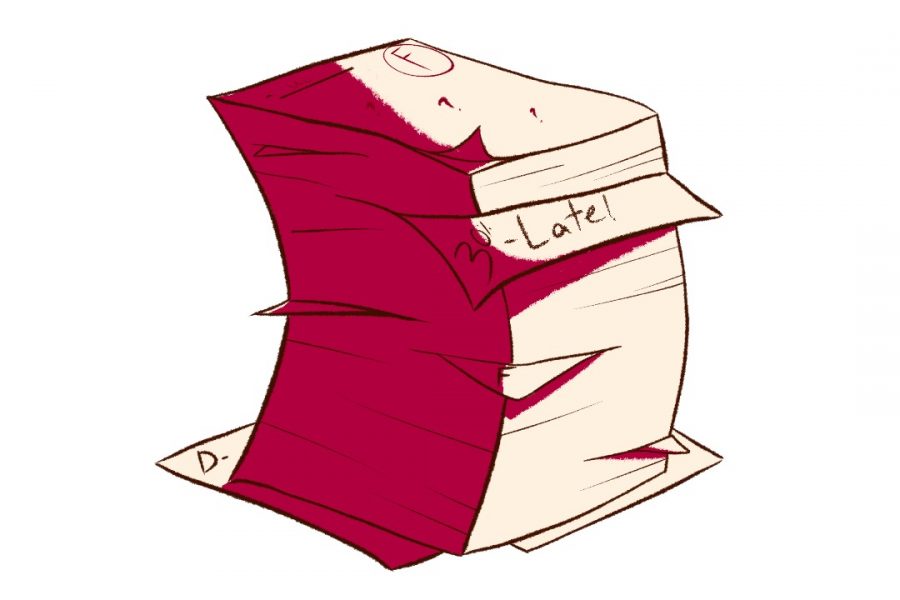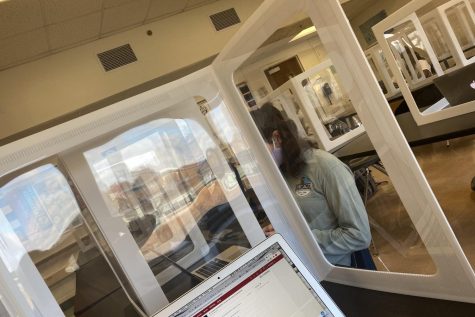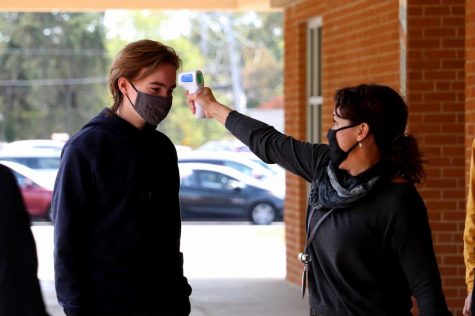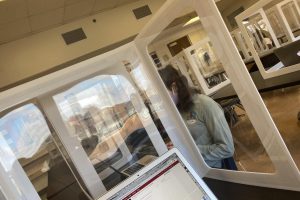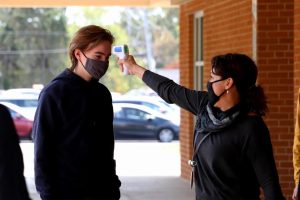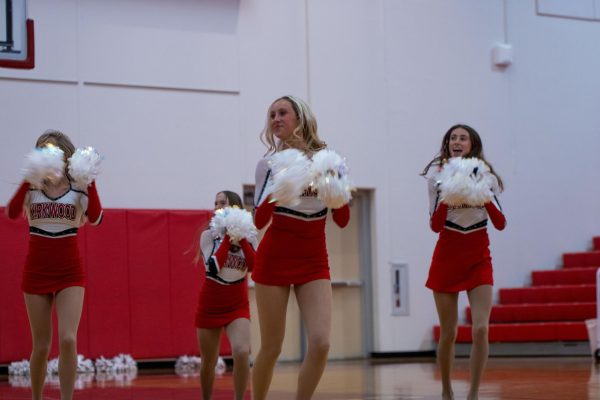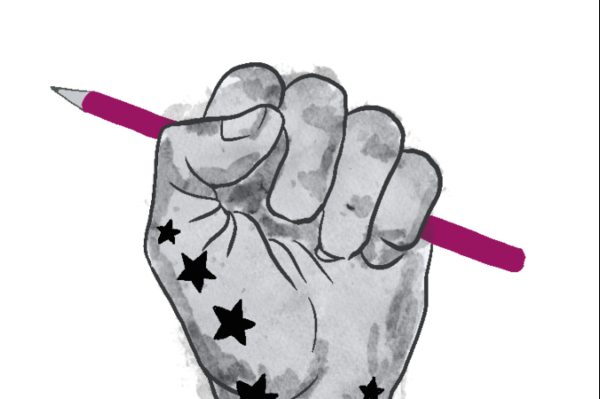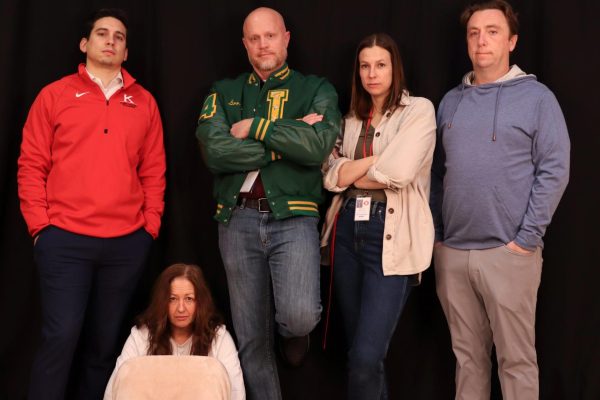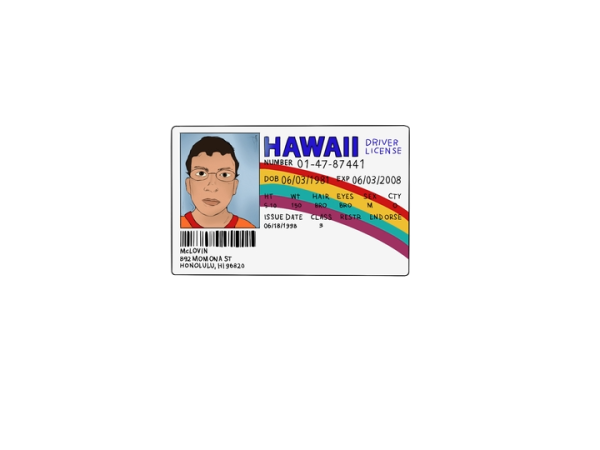Jumping in with one foot
The freshmen class had 163 grade fails compared to their usual less than 50.
The Dougherty Ferry parking lot was empty on Aug. 24, 2020. There were no dressed-up seniors lining the sidewalk outside of the entrance. No whistles, no yelling. And no nervous freshman climbing out of the cars.
Events are not the only thing COVID-19 took away from the Class of 2024. During first semester the freshman class had 163 grade fails compared to last year where there were less than 50. Joe Fisch, 9th grade counselor, said there are many reasons why freshmen are struggling so much this year, including not being able to connect with their teachers during virtual learning.
“In a traditional year [students] are almost forced to [talk to their teachers] because the teacher is right there [and] you’re physically in the classroom,” Fisch said. “Now you have to take proactive steps to send an email to the teacher, make sure you’re responsible enough to show up and [decide] what you are going to talk about. All very valuable skills that you are going to have to learn down the road, but all the freshmen are being forced to learn them now.”
Fisch said that teachers, administrators and counselors are encouraging students to talk to their teachers during office hours and homeroom. However, he said one of the greatest challenges with virtual learning is students not wanting to turn their camera on during Zooms. Amy Potter, freshman physics teacher and mother of a KHS freshman, said turned-off cameras are one of the greatest challenges of virtual learning.
“It’s so hard when you are teaching virtually to know what is going on on the other side of the screen,” Potter said. “Unless a [student] has their camera on and is telling you how they are doing, it’s really hard to figure out who is struggling and who isn’t. A student has to be able to speak up and let us know how they are doing.”
Potter and Fisch said online school is harder for freshman than other grades because they had to learn how to use a laptop, how to upload assignments and brand new technology they had never learned before. They said the middle school transition is hard enough, but even worse when COVID-19 is added into the situation.

“[Freshmen] are coming from a melting pot of different schools and they do not necessarily know each other,” Potter said. “So they are a little bit hesitant to turn on their cameras, to ask for help in front of people that they might not know.”
Potter said that another big challenge with this school year is students not being able to make new friends and join clubs, especially for the ones not involved in sports or a music program. Lilly Ortmann, freshman, said that she is frustrated by the lack of ability to make new friends.
“Freshman year you come into a new school and you really need to build a support system for yourself,” Ortmann said. “With COVID-19, you’re not able to sit close to anyone or do any partner work, so it’s very hard to get yourself a good group of friends that did not go to your school in the past [since you are unable] to talk to them.”
Ortmann said in elementary and middle school she never had any missing assignments, but this year she started having some. Fisch also said some freshmen who had not struggled in the past have had trouble in high school under the virtual learning circumstances.
“I’m a pretty on-top-of-it student but Zooms are not fun,” Ortmann said. “[During online school] you go on a class, teachers talk for a second and then they are like ‘go do your assignments.’ Then you forget since we have the [lunch] break and all of a sudden you check Schoology and then it’s over. Zooms make it harder to write down the stuff you need to do because when doing everything online I don’t think to write everything in a planner.”
Although the start was hard, Potter and Fisch said freshmen are headed in the right direction. Potter said that learning how to advocate for themselves at an early age will help them in the long run. She has also observed growth and noticed that students are coming into homeroom for help more.
“[Freshmen] have had [a] tremendous amount of growth,” Potter said. “Second semester was a clean start for them, so I think they are jumping in with two feet and recognising the expectations of high school.”
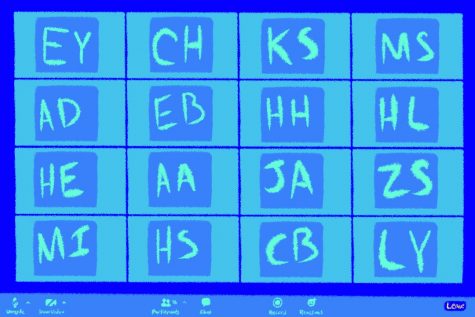
Fisch said that COVID-19 has been hard on the mental health of freshmen due to all of the expectations they have. He encourages them to keep asking for help and connecting with their teachers even if they feel like they have the class under control. He hopes students will learn something from this year’s experience.
“[I hope freshmen learn to] not take anything for granted,” Fisch said. “When we get back to a traditional year [I hope students] really embrace it, appreciate being in school, friends or just having a conversation. We could sit here and think ‘This is horrible we’re missing out on so much,’ which it is and we are, but you also have to try to flip it. As we slowly come out of this you have to think ‘What can I do to make me a better person, and what can I take away from this.’”
Your donation will support the student journalists of Kirkwood High School. Your contribution will allow us to purchase equipment and cover our annual website hosting costs.
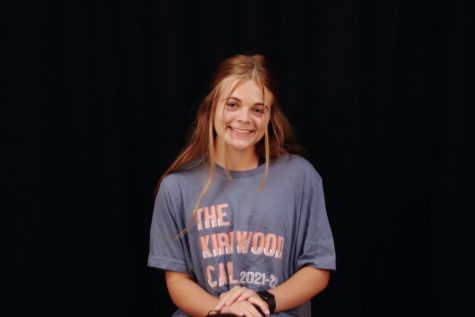
she/her
Hobbies/interests: running, walking, friends/family, traveling, drives, sunsets
Favorite Song: "august" by Taylor Swift
Favorite Quote:...
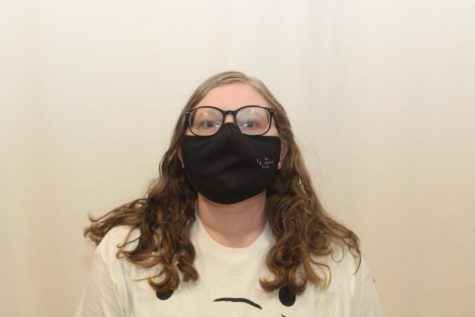
she/her
Favorite musical artist: Watsky
Favorite quote: "When I’m walking down the street I don’t think anyone goes ‘hey look at that man’,...


